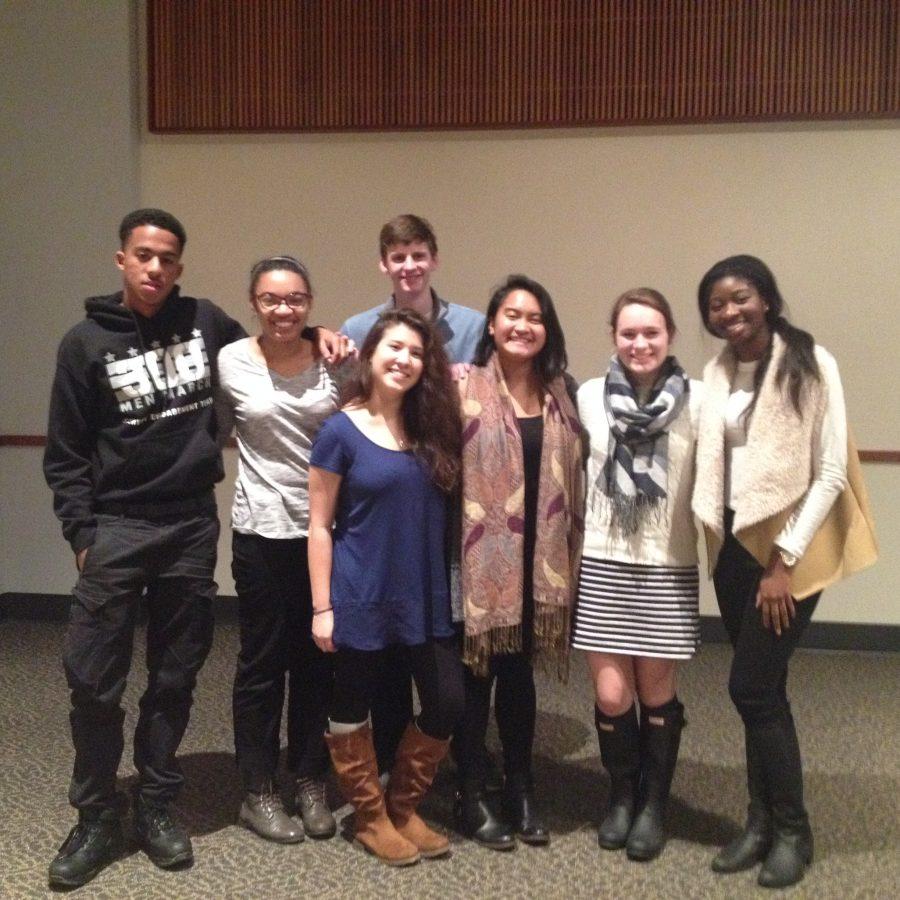On Wednesday, Dec. 2, InterVarsity hosted a “Race Matters” panel, where multiracial students from InterVarsity discussed how their ethnicity related to their spirituality. The event was organized by Abena Baffoe-Bonnie, ‘18, who began the night outlining the panel’s objectives. “Tonight our panel will explore how their ethnic background affects how they see God, the way they experience recent national events, and Loyola’s campus,” said Baffoe-Bonnie
After the brief introduction, Baffoe-Bonnie asked the panelists and the audience to participate in a “fist-to-five,” where each person would rate a statement on a zero (meaning they show their fist) to five (meaning they put up all five fingers) scale, five being the highest. Baffoe-Bonnie then asked a series of questions, for example if Loyola represented their ethnicity well on campus, or if their ethnicity affected how they celebrate their faith.
The audience’s and the panel’s answers varied with each question. Baffoe-Bonnie explained, “We have a variety of answers, because we have a variety of experiences.” She added that the diversity of backgrounds present was a positive because it meant there could be a full and balanced conversation about why race and ethnicity matter.
She then turned to the panel, which consisted of African-American, Cambodian-American, Western European-American, and Haitian-American students.
Baffoe-Bonnie first asked how each of the panelists discovered and embraced their ethnicity. Mia Jenkins, ‘18, explained that she was Cambodian and Irish, and that this deeply affected her family life. “My Cambodian grandma constantly tells me I’m a ‘disgrace’, since I’m not fully Cambodian,” she admitted. Even though she participated in the Cambodian expressions of faith, visited the temple and fed the monks, her grandmother still did not accept her. She felt invalidated in her own ethnicity, she reported. Embarking on her ethnic journey, she said, led her to her faith. She read a quote from Saint Augustine that she found great comfort in: “A friend knows everything about you and still accepts you.” Jenkins explained that the love she feels from God fulfills her desires for acceptance just the way she is.
After the panelists explained their ethnic identities, Baffoe-Bonnie asked how their ethnic and spiritual identities related to recent national events, such as Freddie Grey and Mizzou. Eric Baker, ‘18, immediately took the microphone to share how he felt as an African-American student. He began by saying he was “saddened” by these events, especially because he is personally “very affected.” He paused before adding, “we only seem to care [about race] when something traumatic happens.” Baker went on to explain that he felt blessed by these events, even though they were tragedies, because they “open up the opportunity to address this, because [we] have everyone’s attention.”
Kyhla Desire, ‘18, said that as a black student she was very angry. She remembered all of the conversations she had with her friends before calling her mother, who asked her, “Have you asked God what you should do about it?” Desire admits she hadn’t thought of that before, and after praying for a while, she decided she needed to act. “That prayer led me [with a few other students] to organize the demonstration on campus that we had a few weeks ago. And that demonstration has led us to meet with administration and start implementing serious changes to our campus.”
For the final question, Baffoe-Bonnie asked the panelists what barriers they feel they face at Loyola. Theda Tann, ‘16, revealed that she had never thought she could be a leader. As a first generation Cambodian woman, she had never seen someone who looked like her in a leadership position. “When I thought of the image of a leader, it was always this professional-looking guy in a suit. It was never me.” It wasn’t until last year, when Tann attended an Asian-American conference and saw an Asian-American woman give a speech that she thought, “Maybe I can be a leader, too.”
After the panelists finished speaking, Baffoe-Bonnie asked the audience to form small groups and answer the questions that InterVarsity provided about how each of their ethnicities affect how they experience faith and Loyola. The ending activity emphasized the message that each student’s personal experiences and backgrounds affect how they see the world.















































































































